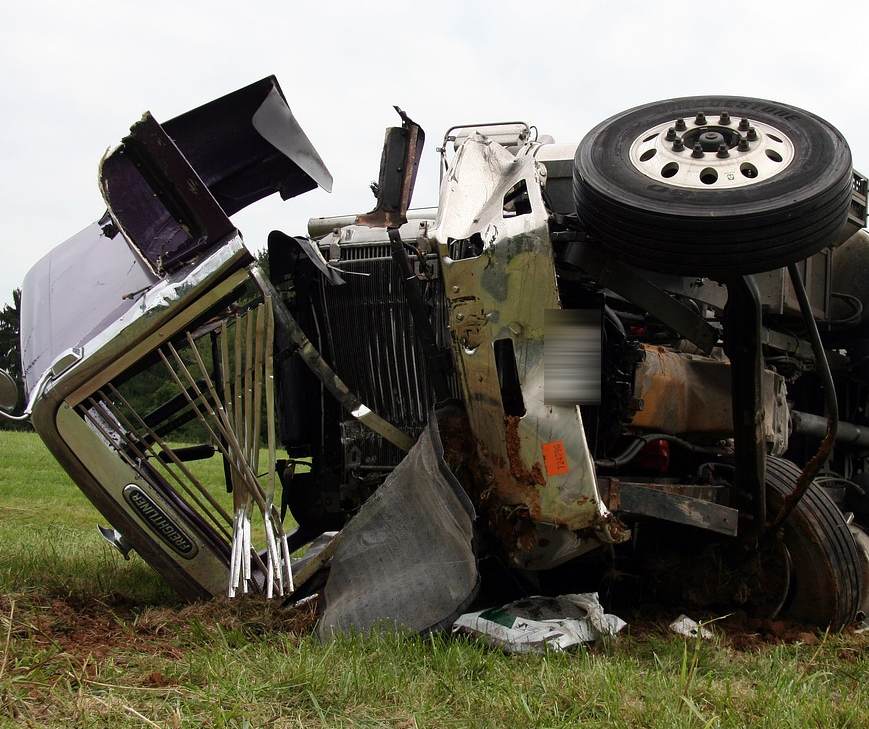Can One Day of the Week Be To Blame For Some of the Main Truck Safety Problems?
Like every industry, the trucking industry faces occasional challenges, most which revolve around the safety of the industry itself. Some people go into trucking because they think it will be an easy job. Those drivers don’t typically stick around very long. Trucking safety is one of the biggest concerns.
There are many benefits to being a long haul truck driver such as working independently. But it requires long hours, a lot of responsibility, and the risk of being injured or even killed while on the job.
Truck drivers suffer sprains and strains due to lifting and overexerting themselves. But the biggest truck safety issues happen on the road. Research suggests that certain days during the week could be to blame.
Accident Stats
Each year, there are about 475,000 large trucks (GVWR 10,000 pounds or more) involved in crashes. Annually, there are over 5,000 fatalities and over 140,000 injuries directly related to the accidents. An estimated 23 percent of fatalities are the occupants of the large trucks while a majority of fatalities are other motorists.
Deadliest Day of the Week
While deadly crashes can occur any day of the week and during any time of day, accidents involving a large truck are more likely near the end of the work week on Thursdays and Fridays (Thursdays being the deadliest) and between 6 am and 3 pm.
Although there’s an increase in car accidents during the weekends, Thursdays and Fridays are the most dangerous day for truckers, particularly those who work a standard Monday thru Friday job.
Contributing Factors in Accidents
According to the U.S. Department of Labor, the actions of an automobile driver are to blame for about 70 percent of accidents involving large trucks. Excessive speed accounts for a little over 20 percent of fatal crashes while distracted driving continues to be a contributing factor, too.
Many accidents occur (or have near misses) because some drivers of smaller vehicles don’t know how to share the road safely with truck drivers. While most truck drivers do their best to be on the lookout for other motorists, it can be increasingly difficult due to blind spots and other “no zones.”
Fatigued Drivers
Although a large number of vehicle drivers are at fault in an accident involving a large truck, large truck drivers are often responsible, too. Revisiting Thursdays and Fridays, these days are deemed the deadliest because many drivers are physically and mentally exhausted. They’ve spent long hours on the road, and they may be stressed, trying to meet a deadline.
When we get tired behind the wheel, our judgment becomes impaired, and we are more likely to have slow reaction times and fail to be as alert as we should be; same goes for tired truck drivers.
Mechanical Errors and Bad Weather
Fatigue isn’t the only factor that compromises truck safety. Some drivers fail to fix a mechanical error on their rig; others may not even know there’s an issue with braking or maneuvering.
Drivers of cars often have the option of avoiding the roads when the weather turns bad. Truck drivers are rarely given the option to pass on driving in bad weather, especially when hauling freight. Bad weather, unsafe road conditions, and driving in unfamiliar territory can all lead to an otherwise preventable accident.
Our thanks to Landon Biehl @lbiehl1 for sending us this. You can find more information at Fatal Thursdays.
Photo credit: https://www.flickr.com/photos/9516941@N08/2916982827
Trucking Safety Starts in the Cab
One thing that we truckers can do is to maintain our rigs in the best possible condition. Be confident in your equipment.
We’re confident in our trucking management software to help you do that. Why not try out TruckingOffice TMS with a free trial? You’ll find our invoicing system will help you maintain your truck because we use your invoices to track mileage for your truck’s upkeep.







Very good article, well written and very thought out. Thanks
Good article, I have seen many fellows who got into accidents due to distractions while using the mobile.
The trucking industry, like any other, faces various challenges, most of which revolve around ensuring safety. Some individuals enter the trucking profession under the assumption that it’s an easy job, but they typically don’t stick around for long. Trucking safety is a major concern, as drivers face the risk of injury or even death while on the job.
Truckers are susceptible to sprains and strains due to lifting and overexerting themselves, but the most significant safety issues occur on the road. Research suggests that specific days of the week could be responsible for some of these problems. Despite the benefits of being a long-haul truck driver, such as independence, the job requires long hours and a great deal of responsibility.